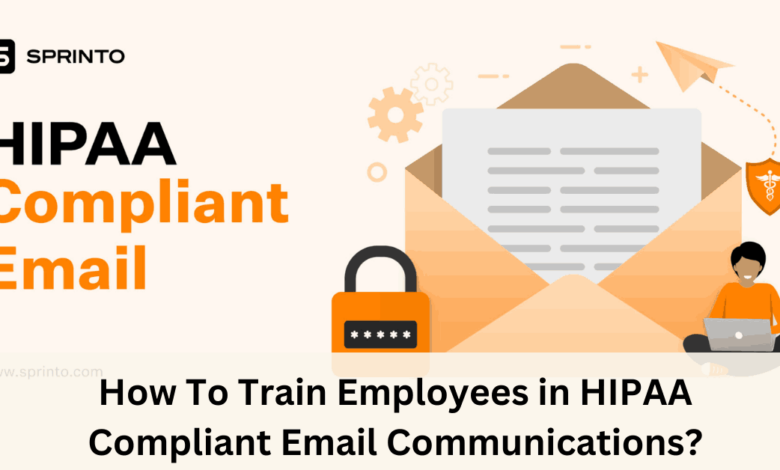How To Train Employees in HIPAA Compliant Email Communications

In your healthcare practice’s email communications, HIPAA compliance can help build patient and staff trust. You can avoid legal issues like civil and criminal penalties that result from non-HIPAA compliant email violations.
Training your employees to comply with HIPAA regulations in email communications can be the first step to securing your healthcare information. Here is how to train them:
Teach Them How To Create Secure Emails
Train your healthcare staff to create an email with a strong password to minimize security threats. Email logins with a two-step verification can also be more secure than those without authentications.
When creating your practice’s email passwords, combine upper- and lower-case letters, symbols like ampersand or exponent, and alphanumerics.
Regularly changing your healthcare setup’s email passwords can reduce hacking risks and improve HIPAA compliance. Informing your staff about dynamic screening and how to enable it can prevent malicious activities like spamming.
Train Them To Encrypt Emails
Encrypting your healthcare practice’s emails can prevent unauthorized access to email messages between you and your staff or patients. Encrypted emails protect data like patient’s health information, payments, and test results.
When training your employees, inform them about key pair generation. Generated key pairs in email encryption contain unique algorithms that help secure information between the end users. Some encryption methods to consider for your healthcare emails include:
- Pretty Good Privacy (PGP)
- Opportunistic Transport Layer Security (TLS)
- Third-party Plugin
Teach Them How To Avoid Phishing Scams
When training your employees in HIPAA compliant email communications, inform them about phishing scams like whaling and spear phishing. One way your practice’s employees can avoid the scams is by ignoring suspicious links sent by random emails.
This can protect your practice’s staff or patient’s credit information. Your employees should also regularly update their browsers to log into your practice’s email. During training, inform your healthcare business’s employees how to identify email phishing scams.
Random emails with spelling errors, informal greetings, inconsistent domain names or links, or those asking for sensitive information can cause phishing threats.
Teach Them How To Audit Emails
Email auditing entails checking and analyzing the sent messages to identify any threats. Training your healthcare employees on email auditing can involve tracking the times your practice’s email account has been logged in.
The staff should also track the names of the people who might have sent unauthorized emails. Your employees should know how to use anti-virus software or antispam features to prevent any threats after auditing.
What To Do After a HIPAA Compliant Email Violation
Backing up your healthcare organization’s emails can help prevent violations of HIPAA regulations in your email communications. Email backups can help you track all communication between you and the patients or employees. You can also retrieve lost emails more conveniently.
Reporting any breach of sensitive healthcare information to the Department of Health and Human Services may help keep your practice HIPAA compliant. Updating your healthcare practice’s protected health information (PHI) guidelines may prevent future HIPAA compliant email violations.
Keep Your Practice HIPAA Compliant
HIPAA compliant email communications can help save you from possible legal penalties. Train your employees to create secure emails, audit the emails, and identify and avoid phishing scams to keep your practice HIPAA compliant. Contact a reputable HIPAA security expert for additional services to keep your practice compliant.




